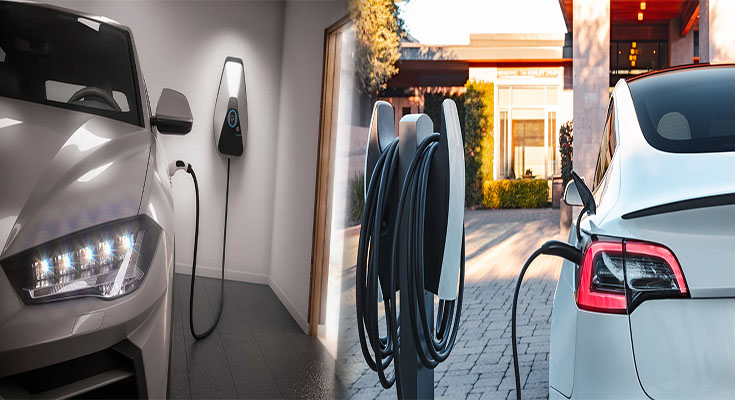When it comes to choosing the right electric vehicle charging station for your home, there are several things you should keep in mind. They include safety considerations, cost-saving tips and more.
Choosing the right charger can be an important investment for many drivers. It can also help you save money on fuel and contribute to the environment.
Types
An electric vehicle charging station converts the power available in your home– usually either 120 volts or 240 volts–into a current flow that an electric vehicle’s battery system can accept.
Level 1 chargers convert 120-volt household outlets to a charge rate of about 1.4 kilowatts. They are a good choice for most people who need to charge their electric vehicles at home, or in offices where workplace charging is offered.
A Level 2 charging station converts 240-volt circuits into a current flow that an EV’s battery system can accept. They can charge a typical EV battery overnight and are commonly installed by EV owners for home use.
Some Level 2 charging stations can be remotely controlled by apps over WiFi and Bluetooth, which can be handy if you need to schedule sessions or monitor the charging of your EV from afar. However, they are typically more expensive than Level 1 chargers.
Choosing the Right Charging Station
There are a lot of charging station options to choose from and each one has its own pros and cons. The right charger for your needs depends on several factors, including the type of EV you drive, how fast you need to charge and where you want to place it.
Charging speed will vary based on a charger’s amperage, or electrical current, as well as your EV’s battery size and your home’s power level. A 32-amp charger will add around 25 miles of range per hour, while a 50-amp charger will add around 37 miles.
It’s also important to choose a charging station that’s weather-proof. This means that it can withstand rain, snow, extreme heat and cold without affecting the car’s charging capability.
Safety Considerations
Electric vehicles, which use renewable energy instead of non-renewable fossil fuels, are a promising alternative to traditional petrol and diesel vehicles. However, their powerful voltages present a number of safety concerns that must be managed to avoid loss, damage or injury.
For EVs to be safe, charging stations must be correctly installed in the home and offer maximum protection against electrical shock and fire. For this reason, you should consider choosing an electric vehicle charging station that is safety certified by an established testing organization like UL.
Moreover, it is important to ensure that the charger is installed on an uprated power socket and connected to a Type B Residual Current Device (RCD) that will turn off power if it detects a fault.
Charging stations are a valuable investment and should be carefully selected to suit your needs. But be sure to choose an experienced, specialized EV charging station installer who will be able to correctly install the equipment and ensure it complies with all local and national codes and regulations.
Cost-Saving Tips
Whether you’re buying a home charging station for your new electric vehicle or already have one, you’ll need to do some research on how to save money. There are a variety of options for lowering your electricity costs, including switching to renewable energy or using it during off-peak hours.
For example, some utilities offer an electric car tariff that enables you to have two meters in your home. The second meter can be used for night-time recharging for your EV, and this will help you to reduce your power bill.
You can also take advantage of free public charging stations, which are popping up all over the place, such as in malls and at grocery stores. Many of these are also connected to charging networks, so you can use them for a lower rate.

